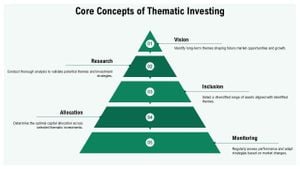On January 26, Japanese television personality Mariko Do surprised her followers by sharing her children's ages on social media, where she revealed they are now 14 and 11 years old. Celebrations included making hand-rolled sushi to mark their birthdays, showcasing her commitment to family traditions.
Her Instagram post, which featured delightful photos of the sushi spread, captured the very essence of family and togetherness. Underneath the photos, Do wrote, "This month is my children’s birthday, so we celebrated with hand-rolled sushi. Time flies, now they are 14 and 11. Thank you for the delicious meal!" With accompanying hashtags like #HomeCooking and #BirthdayCelebration, her post was well-received.
The announcement sparked numerous comments from her followers, with many expressing disbelief at how quickly her children have grown. One follower remarked, "14-year-old’s parent at this level is just too cute." Another added, "I never imagined they were such big kids, they’re incredibly cute." These reactions highlight the connection adults feel when observing the passage of time through children’s growth.
Do’s life has been punctuated by significant milestones since she married her husband from the music industry in 2008. Since then, their family has flourished, with the first child born in January 2011, followed by their daughter three years later. The age difference and development stages of her children play out against the backdrop of every parent's challenge: the swift transition from childhood to adolescence.
Facing parenting challenges is not new, particularly as children approach adolescence, where parental support and guidance can make all the difference. Experts argue the transition years are financial and emotionally taxing, prompting discussions around how involved parents should remain during this period. A balance is necessary, especially as some parents adopt the "hands-off" approach, believing kids should tackle challenges independently.
Reflecting on these dynamics, educational consultant Anamiko Ashiro recounts her experience tutoring students preparing for entrance exams. "I worked closely with students who juggled sports and academic commitments. One mother insisted, 'I'll pay for extra help, but the rest is up to him.' Unfortunately, she was largely uninvolved, leading to her son struggling to develop study strategies effectively." This approach caused some students to either succeed spectacularly or face obstacles, highlighting the need for parents to remain engaged.
Illustratively, Ashiro shares about her acquaintance Yuki, whose mother calculated every expense related to her education and insisted on accountability. "Yuki later left home at 18, disconnected from her mother, who had burdened her with financial hopes instead of emotional support. This situation shows how detrimental parental pressure can be, especially during formative years," she explains.
While there are success stories of children thriving under various circumstances, many young people still grapple with the weight of expectations and pressures induced by their upbringing. Parents may unintentionally become sources of stress rather than support, manifesting the delicate balance of parenting during these challenging phases.
The experiences of Mariko Do encapsulate the broader themes surrounding parenting during these swift transitions. Although her children are maturing, she shares their lives joyously, inviting genuine connection and admiration from her audience.
Looking through the lens of adolescent development, conversations about mental health and self-awareness are equally relevant, as many young people may not identify their struggles clearly. For example, one individual shared their long path to recognizing they had ADHD, having spent years coping with misunderstandings and neglect from their family. Through candid discussions about such challenges, we gain insight and perspective on the support vulnerable adolescents need.
Underneath it all, the importance of open conversations between parents and children proves invaluable. Just as Mariko Do invites joy and connection, engaging with children earnestly fosters emotional resilience and cultivates supportive environments.
Overall, parenting challenges and adolescent development remain complex yet significant topics, threading through the fabric of everyday family life. The celebrations, trials, and joys shared today resonate deeply, reminding us all to appreciate the stages of life—and to nurture our children just as Mariko Do has, with love and care.



